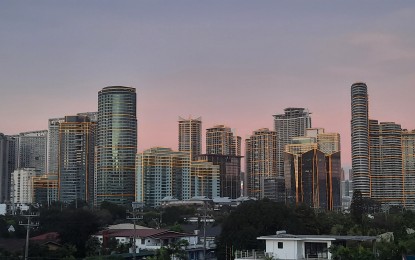
(PNA Photo by Kris Crismundo)
MANILA – The House of Representatives on Monday approved on second reading a measure proposing amendments to the Corporate Recovery and Tax Incentives for Enterprises (CREATE) Act to enhance the Philippines' tax incentives.
During the plenary session, the chamber passed through voice voting House Bill 9794, otherwise known as the CREATE MORE (Maximize Opportunities for Reinvigorating the Economy) bill, which aims to make the country's tax regime both compliant with the minimum global tax and competitive.
The bill proposes that the income tax rates will be 20 percent for domestic and resident foreign corporations elected to be under the enhanced deductions regime.
House Ways and Means Committee chair Joey Salceda, author of the measure, said the world is currently moving toward a global minimum tax rate of 15 percent, which may require multinationals currently in the Philippines to pay a top-up tax in their countries of origin.
Salceda said the top-up tax would defeat the purpose of the income tax holiday (ITH) and special corporate income tax (SCIT) regime of 0 and 5 percent under the CREATE law.
"So, we need a tax regime that is both compliant with the minimum global tax and remains competitive. That is why we are reducing the tax rate for those under enhanced deductions from 25 percent to 20 percent so that eligible enterprises will shift from SCIT to enhanced deductions," he said.
He also pointed out that any ambiguity in the CREATE law that has led to misinterpretations must be resolved.
He particularly noted that the bill would make the value-added tax (VAT) regime simpler, clearer, and transaction-based, while also improving its refund process.
"The incentives regime under the CREATE transition period must be without any ambiguity. And the VAT refund system must work," he said.
He said the bill reverts the power to grant incentives to the Investment Promotion Agencies (IPAs), but the policymaking and oversight functions of the Fiscal Incentives Review Board (FIRB) are retained.
"Our tax incentive approval mechanism must also be agile – while maintaining the government’s oversight of the process," he said.
The bill also proposes a 100 percent additional deduction for power expenses.
"High power cost is an existential threat to Philippine industries, especially in the manufacturing sector. Because we cannot afford to subsidize power costs as our neighbors do, an enhanced deduction for power cost will be more targeted towards those who need competitive power rates to create jobs," Salceda said. (PNA)
